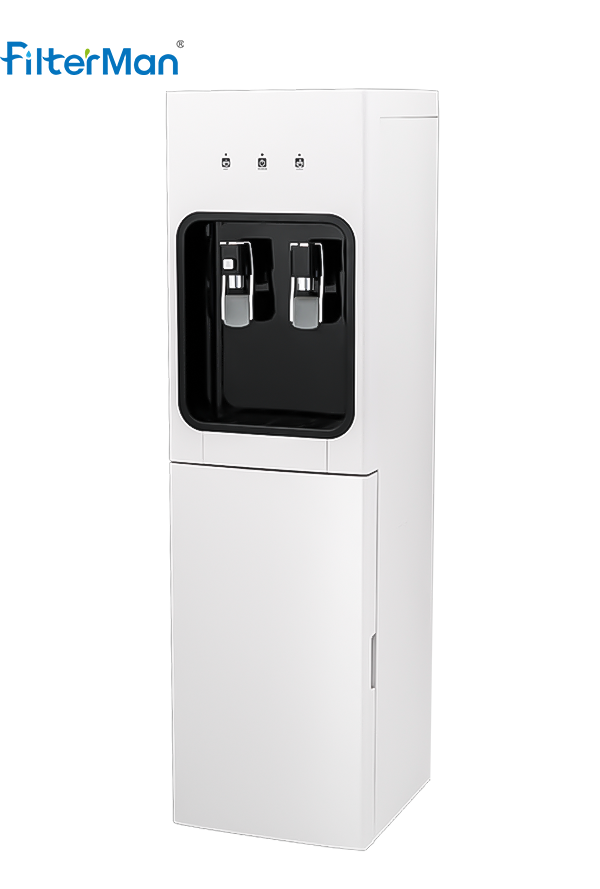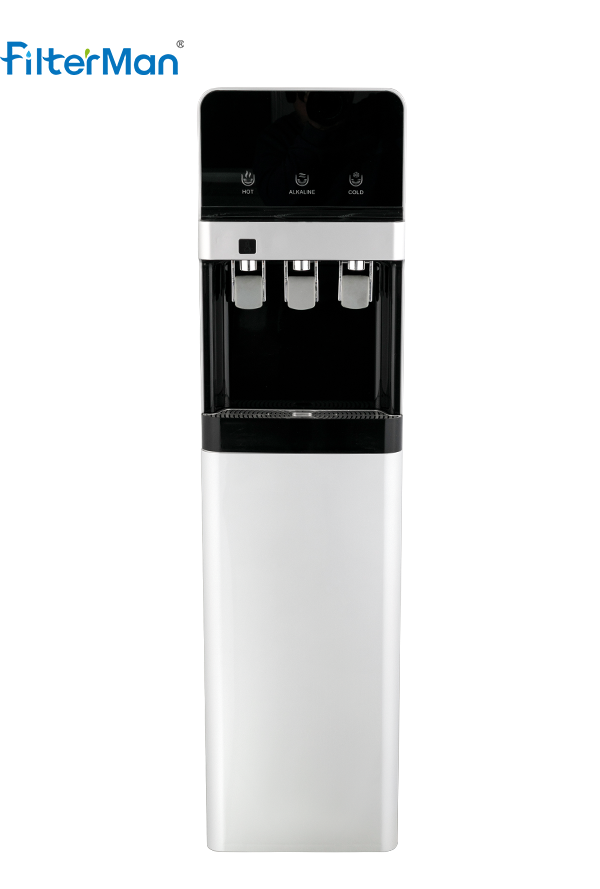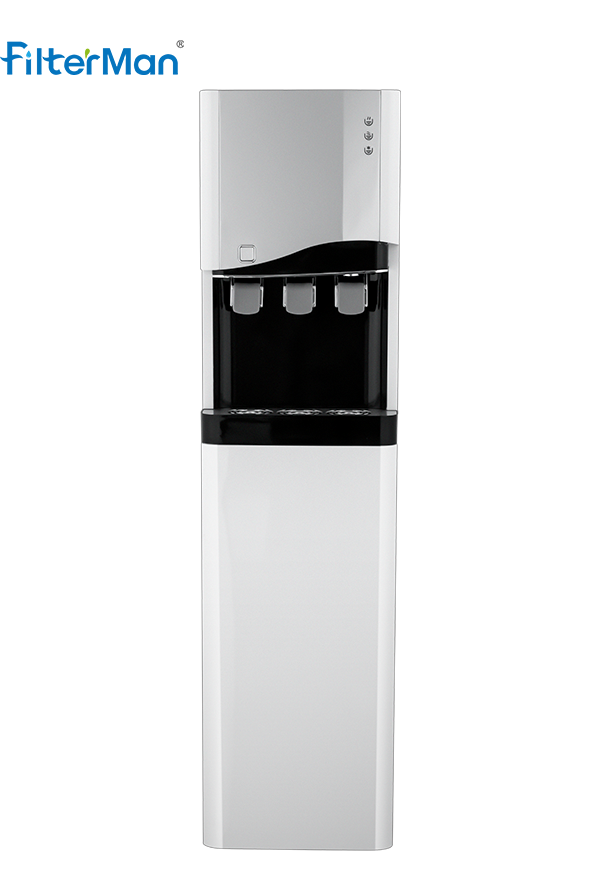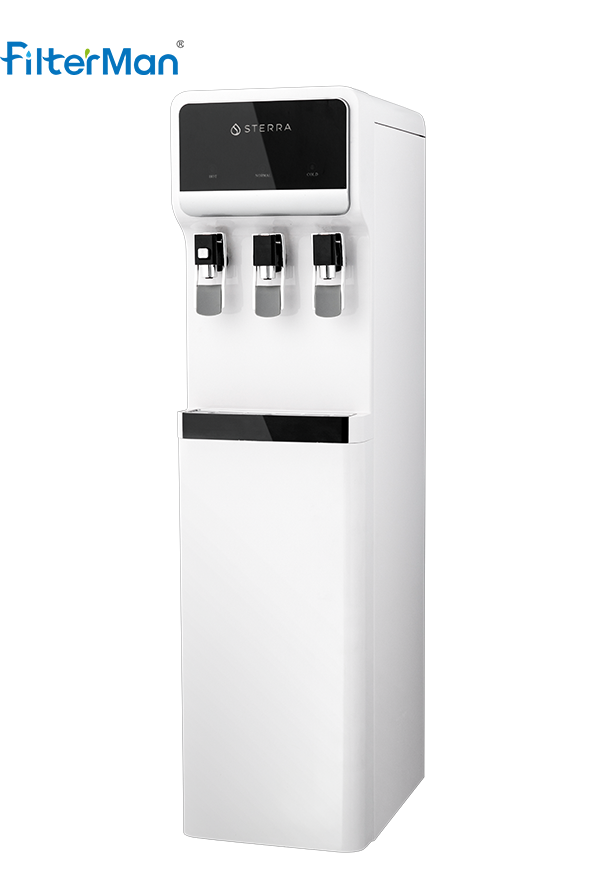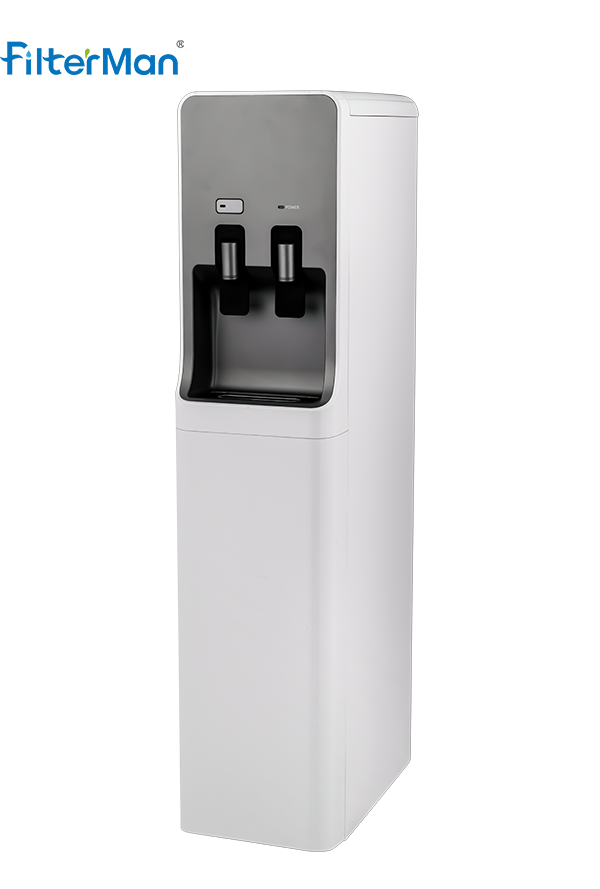Within the realm of Display Model Drinking Water Dispensers, the selection of the right filtration system stands as a pivotal consideration, ensuring that clean and safe drinking water is consistently delivered. These dispensers offer a diverse array of filtration systems, each bearing its own distinct advantages. Here's a closer look at the common filtration systems available:
-
Carbon Filtration: A cornerstone in water dispensers, carbon filters excel at the removal of chlorine, sediments, odorous elements, and organic compounds from the water, culminating in a noticeable improvement in taste and odor.
-
UV (Ultraviolet) Sterilization: Leveraging UV technology, this system proves adept at eradicating microorganisms such as bacteria and viruses from the water, adding an extra layer of protection against waterborne pathogens.
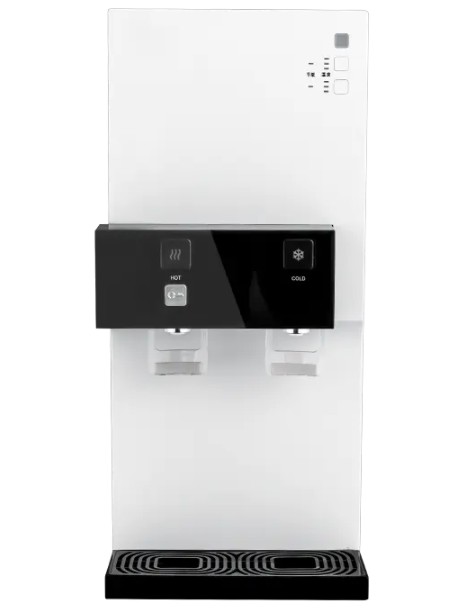
-
Reverse Osmosis (RO): RO systems harness the power of a semipermeable membrane to comprehensively eliminate impurities, encompassing heavy metals, minerals, and select chemicals. They have garnered a reputation for producing water of exceptional purity.
-
Multi-Stage Filtration: Certain dispensers employ a fusion of filtration methods, encompassing pre-filters, carbon filters, and post-filters, to create a holistic solution that addresses a wide spectrum of contaminants.
-
Sediment Filtration: These filters are thoughtfully designed to ensnare larger particles such as sand, silt, and rust, acting as a reliable safeguard against their entry into your drinking water.
-
Mineral Enhancement: Distinct filtration systems not only eliminate impurities but also reintroduce beneficial minerals into the water, elevating both the taste and health benefits of the dispensed water.
-
Ion Exchange: Ion exchange filters are instrumental in reducing water hardness by substituting calcium and magnesium ions with sodium ions, resulting in water of a softer quality.
-
Ceramic Filtration: Ceramic filters demonstrate prowess in the eradication of bacteria and sediments, rendering them particularly valuable in areas where water sources are notoriously unreliable.
-
Activated Alumina: This filtration medium is specifically deployed to eliminate fluoride and arsenic from the water, rendering it a fitting solution for regions grappling with high fluoride levels.
-
Chemical Adsorption: Certain filters are meticulously engineered to adsorb specific contaminants such as lead, chlorine, or volatile organic compounds (VOCs).
-
Smart Filtration: On the advanced end of the spectrum, certain models incorporate intelligent sensors and monitoring systems. These not only track the status of the filter but also autonomously order replacements when the need arises, ensuring an uninterrupted supply of clean water.
-
Hot and Cold Water Dispenser: Beyond filtration, certain models go the extra mile by affording the convenience of dispensing both hot and cold water. This versatility caters to a wide array of beverage and culinary requirements.
The selection of the most suitable filtration system hinges on several factors, encompassing the quality of the water in your locality, the specific contaminants that warrant attention, and your individual preferences for taste and mineral content. Display Model Drinking Water Dispensers are designed to cater to a spectrum of needs, offering a plethora of filtration options to guarantee access to water that's not just clean but also healthful.

 English
English 简体中文
简体中文
 English
English